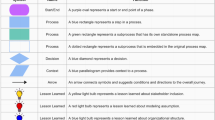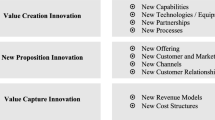Abstract
Context
The COVID-19 pandemic posed challenges to people from all professions and walks of life, and software professionals were no exceptions.
Objective
In this study, we investigated the impact of the COVID-19 pandemic on software professionals and their work practices with a focus on New Zealand. We specifically examined how software professionals and companies responded to different challenges, which is missing in the current literature.
Method
We conducted an exploratory study to learn how COVID-19 challenged software professionals and their responses to these challenges. We interviewed eighteen software professionals working in different New Zealand software companies providing them an opportunity to reflect on how they and their companies faced and dealt with the pandemic. We performed thematic analysis to identify various themes from our data set.
Results
We found that software professionals faced various personal, financial, and work setup-related challenges. COVID-19 impacted the productivity and workload of software professionals. It also affected the software development practices for teams, specifically for colocated teams. We observed that software professionals tried to workaround some challenges by themselves. We found that software professionals demonstrated empathy to their coworkers and supported each other during tough times. We also found that software companies facilitated software professionals in several various ways. We present a framework of the perceived responses of the software professionals, teams, and companies to various challenges they faced during the pandemic.
Conclusion
Our results reveal that software professionals with specific demographics, e.g., working and single parents, contractual employees, and employees working for smaller companies, were most impacted by the COVID-19 restrictions. Our findings indicate that, through the COVID-19 pandemic, software companies trusted and empowered their employees and equipped them with the right tools and equipment and a healthy environment.

Similar content being viewed by others
Data Availability
The authors cannot share the data set to maintain the anonymity of the study participants and fulfill Ethics requirements.
References
Alon TM, Doepke M, Olmstead-Rumsey J, Tertilt M (2020) The impact of COVID-19 on gender equality. Technical report, National Bureau of Economic Research
Bao L, Li T, Xia X, Zhu K, Li H, Yang X (2020) How does working from home affect developer productivity?–A case study of Baidu during COVID-19 pandemic. Preprint at http://arxiv.org/abs/2005.13167
Bellmann L, Hübler O (2020) Working from home, job satisfaction and work–life balance–robust or heterogeneous links? Int J Manpow
Bezerra, CI, de Souza Filho JC, Coutinho EF, Gama A, Ferreira AL, de Andrade GL, Feitosa CE (2020) How human and organizational factors influence software teams productivity in COVID-19 pandemic: a Brazilian survey. In: Proceedings of the 34th Brazilian symposium on software engineering. pp 606–615
Braun V, Clarke V, Cooper H (2012) APA handbook of research methods in psychology. Cooper H, Thematic Analysis, p 2
Butler J, Jaffe S (2021) Challenges and gratitude: a diary study of software engineers working from home during COVID-19 pandemic. In: 2021 IEEE/ACM 43rd International Conference on Software Engineering: Software Engineering in Practice (ICSE-SEIP). IEEE, pp 362–363
Creswell JW, Poth C (2007) Qualitative inquiry & research design choosing among five approaches. Sage Publications. Thousand Oaks, CA, ???
Cucolas A-A, Russo D (2021) The impact of working from home on the success of scrum projects: a multi-method study. Preprint at http://arxiv.org/abs/2107.05955
Denzin NK (2005) The discipline and practice of qualitative research. In: Denzin NK, Lincoln YS (ed) Handbook of Qualitative Research. pp 1–42
Ford D, Storey M-A, Zimmermann T, Bird C, Jaffe S, Maddila C, Butler JL, Houck B, Nagappan N (2021) A tale of two cities: Software developers working from home during the COVID-19 pandemic. ACM Trans Softw Eng Methodol (TOSEM)
Hassan SA (2021) Agile project development issues during COVID-19. In: Lean and Agile Software Development: 5th International Conference, LASD 2021, Virtual Event, January 23, 2021, Proceedings, vol 408. Springer Nature, p 59
Kowal M, Coll-Martín T, Ikizer G, Rasmussen J, Eichel K, Studzińska A, Koszałkowska K, Karwowski M, Najmussaqib A, Pankowski D et al (2020) Who is the most stressed during the COVID-19 pandemic? Data from 26 countries and areas. Appl Psychol Health Well Being 12(4):946–966
Krukowski RA, Jagsi R, Cardel MI (2021) Academic productivity differences by gender and child age in science, technology, engineering, mathematics, and medicine faculty during the COVID-19 pandemic. J Womens Health 30(3):341–347
Kurian RM, Thomas S (2021) Perceived stress among information technology professionals in India during the COVID-19 pandemic. Theor Issues Ergon Sci 1–17
Machado LS, Caldeira C, Perin M, de Souza CR (2020) Gendered experiences of software engineers during the COVID-19 crisis. IEEE Soft
Marek K, Winska E, Dbrowski W (2021) The state of agile software development teams during the COVID-19 pandemic. In: International Conference on Lean and Agile Software Development. Springer, pp 24–39
Marinho M, Amorim L, Camara R, Oliveira BR, Sobral M, Sampaio S (2021) Happier and further by going together: the importance of software team behaviour during the COVID-19 pandemic. Technol Soc 101799
Masood Z, Damian D, Blincoe K (2021) How New Zealand software companies are adapting work settings with changing times. IEEE Softw
Miller C, Rodeghero P, Storey M-A, Ford D, Zimmermann T (2021) “How was your weekend?” Software development teams working from home during COVID-19. In: 2021 IEEE/ACM 43rd International Conference on Software Engineering (ICSE). IEEE, pp 624–636
Neto PADMS, Mannan UA, de Almeida ES, Nagappan N, Lo D, Kochhar PS, Gao C, Ahmed I (2021) A deep dive on the impact of COVID-19 in software development. IEEE Trans Softw Eng (TSE)
Neumann M, Bogdanov Y, Lier M, Baumann L (2021) The SARS-COV-2 pandemic and agile methodologies in software development: A multiple case study in Germany. In: International conference on lean and agile software development. Springer, pp 40–58
NicCanna C, Razzak MA, Noll J, Beecham S (2021) Globally distributed development during COVID-19. Preprint at http://arxiv.org/abs/2103.17181
Nolan A, White R, Soomro M, Dopamu BC, Yilmaz M, Solan D, Clarke P (2021) To work from home (WFH) or not to work from home? Lessons learned by software engineers during the COVID-19 pandemic. In: European conference on software process improvement. Springer, pp 14–33
Parlak, S, Celebi Cakiroglu O, Oksuz Gul F (2021) Gender roles during COVID-19 pandemic: the experiences of Turkish female academics. Gend Work Organ
Ralph P, Baltes S, Adisaputri G, Torkar R, Kovalenko V, Kalinowski M, Novielli N, Yoo S, Devroey X, Tan X et al (2020) Pandemic programming. Empir Softw Eng 25(6):4927–4961
Rodeghero P, Zimmermann T, Houck B, Ford D (2021) Please turn your cameras on: Remote onboarding of software developers during a pandemic. In: 2021 IEEE/ACM 43rd international conference on software engineering: software engineering in practice (ICSE-SEIP). IEEE, pp 41–50
Russo D, Hanel PH, Altnickel S, van Berkel N (2021) Predictors of well-being and productivity among software professionals during the COVID-19 pandemic-a longitudinal study. Empir Softw Eng 26(4):1–63
Russo D, Hanel PP, Altnickel S, van Berkel N (2021) The daily life of software engineers during the COVID-19 pandemic. Preprint at http://arxiv.org/abs/2101.04363
Sharma N, Vaish H (2020) Impact of COVID-19 on mental health and physical load on women professionals: an online cross-sectional survey. Health Care Women Int 1–18
Staniscuaski F, Kmetzsch L, Zandona E, Reichert F, Soletti RC, Ludwig ZM, Lima EF, Neumann A, Schwartz IV, Mello-Carpes PB et al (2020) Gender, race and parenthood impact academic productivity during the COVID-19 pandemic: from survey to action. bioRxiv
Waizenegger L, McKenna B, Cai W, Bendz T (2020) An affordance perspective of team collaboration and enforced working from home during COVID-19. Eur J Inf Syst 29(4):429–442
Yildirim TM, Eslen-Ziya H (2021) The differential impact of COVID-19 on the work conditions of women and men academics during the lockdown. Gend Work Organ 28:243–249
Acknowledgements
We thank all participants who contributed to this study. We would also like to thank our anonymous reviewers for their feedback that helped to improve the quality of this work.
Author information
Authors and Affiliations
Corresponding author
Ethics declarations
Conflict of Interest
The authors declare that they have no conflict of interest. This research was partially funded by the Natural Sciences and Engineering Research Council (NSERC). This study was conducted under approval from the Human Participants Ethics Committee at the University of Auckland.
Additional information
Communicated by: Nachiappan Nagappan
Publisher's Note
Springer Nature remains neutral with regard to jurisdictional claims in published maps and institutional affiliations.
This article belongs to the Topical Collection: Special Issue on Software Engineering and COVID-19.
Rights and permissions
Springer Nature or its licensor (e.g. a society or other partner) holds exclusive rights to this article under a publishing agreement with the author(s) or other rightsholder(s); author self-archiving of the accepted manuscript version of this article is solely governed by the terms of such publishing agreement and applicable law.
About this article
Cite this article
Masood, Z., Blincoe, K. & Damian, D. What have we learned? A conceptual framework on New Zealand software professionals and companies’ response to COVID-19. Empir Software Eng 28, 109 (2023). https://doi.org/10.1007/s10664-023-10309-8
Accepted:
Published:
DOI: https://doi.org/10.1007/s10664-023-10309-8




